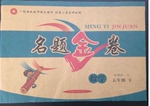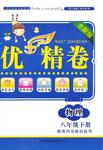题目内容
His car broke _____________on the way, so he had to repair it.A. into B.out C.up D.down
答案:D
解析:
提示:
解析:
| break down意思是“(车辆、电梯等)出故障了,坏了”。
|
提示:

练习册系列答案
 名题金卷系列答案
名题金卷系列答案 优加精卷系列答案
优加精卷系列答案
相关题目
题目内容
His car broke _____________on the way, so he had to repair it.A. into B.out C.up D.down
| break down意思是“(车辆、电梯等)出故障了,坏了”。
|

 名题金卷系列答案
名题金卷系列答案 优加精卷系列答案
优加精卷系列答案